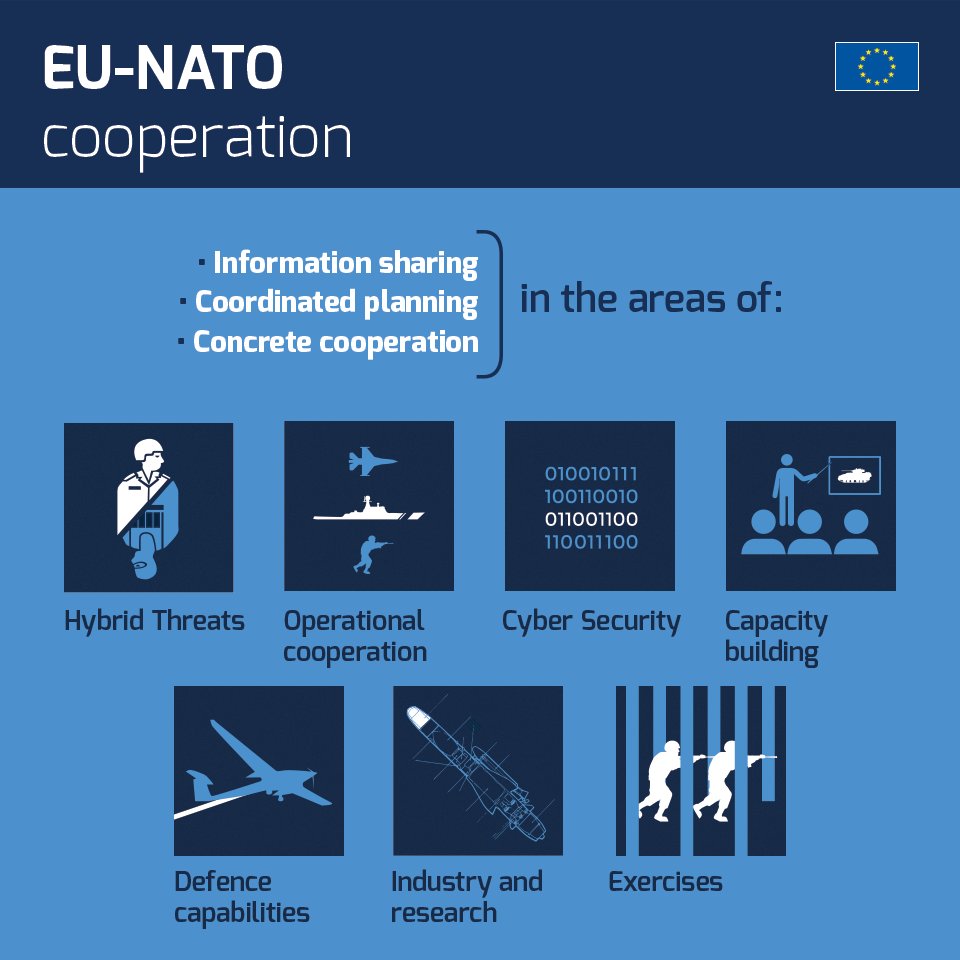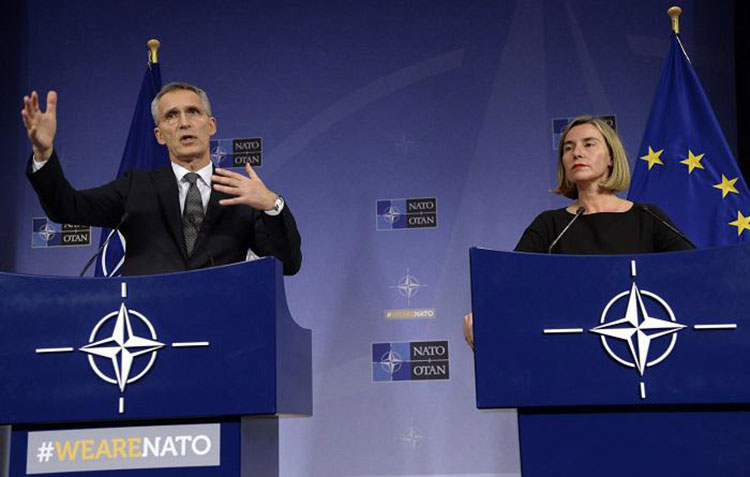The EU and NATO have agreed 34 new actions as part of the ongoing implementation of the 2016 Joint Declaration. These deepen cooperation and also expand cooperation to new issues, including by addressing military mobility, information sharing in the fight against terrorism, and promoting women’s role in peace and security.
The EU and NATO Councils on 05 December endorsed continued close and mutually reinforcing co-operation. Following an earlier set of proposals for cooperation adopted at the end of 2016, a new and additional set was now agreed to boost the engagement even further. EU High Representative Federica Mogherini noted “I am proud that in one year we managed to put in place a Europe of security and defence, and to deepen our cooperation with NATO as never before. We agreed further steps for practical EU NATO cooperation – 34 new measures, including in new areas such as counterterrorism, military mobility, women, peace and security.”
Following the Global Strategy presented by Mogherini in June 2016, on 8 July 2016, the President of the European Council and the President of the European Commission, together with the Secretary General of the North Atlantic Treaty Organization signed a Joint Declaration in Warsaw with a view to giving new impetus and new substance to the EU-NATO strategic partnership. It outlined seven concrete areas where cooperation between the two organisations should be enhanced:
- countering hybrid threats;
- operational cooperation including at sea and on migration;
- cyber security and defence;
- defence capabilities;
- defence industry and research;
- exercises;
- supporting Eastern and Southern partners’ capacity-building efforts.
 On the basis of the mandate by the Joint Declaration, a common set of proposals was endorsed by the EU and NATO Councils on 6 December 2016. The set includes 42 concrete actions for the implementation of the Joint Declaration in all seven areas of cooperation with a clear focus on practical deliverables. These proposals are currently being implemented. A first progress report issued in June 2017, and a second such report published now, highlight the significant progress already achieved.
On the basis of the mandate by the Joint Declaration, a common set of proposals was endorsed by the EU and NATO Councils on 6 December 2016. The set includes 42 concrete actions for the implementation of the Joint Declaration in all seven areas of cooperation with a clear focus on practical deliverables. These proposals are currently being implemented. A first progress report issued in June 2017, and a second such report published now, highlight the significant progress already achieved.
With a view to consolidating progress and ensuring further advances in all areas, on 5 December 2017, the two Councils endorsed a common set of new proposals. The set includes a total of 34 actions for the continued implementation of the Joint Declaration. These also address new topics, such as counter-terrorism, military mobility and women, peace and security. The next progress report on implementation is due in June 2018.
The Global Strategy of June 2016 recognised the growing demand for the EU as security provider in Europe and globally. The Strategy outlines concrete action to strengthen the European Union in the field of defence and security. A whole set of different activities has been launched since then of which the enhanced EU NATO cooperation is one important element. Other initiatives comprise the launch of a Defence Fund that will support research and capability projects of Member States in a cooperative manner, of a Coordinated Annual Review on Defence (CARD) that helps coordinating budgets or of a scheme for deepening defence cooperation through binding commitments amongst Member States (Permanent Structured Cooperation, a.k.a. PESCO). All this supports reducing fragmentation within the European Union, making better use of economies of scale and increasing efficiency of output of European defence which will also be beneficial to NATO.



